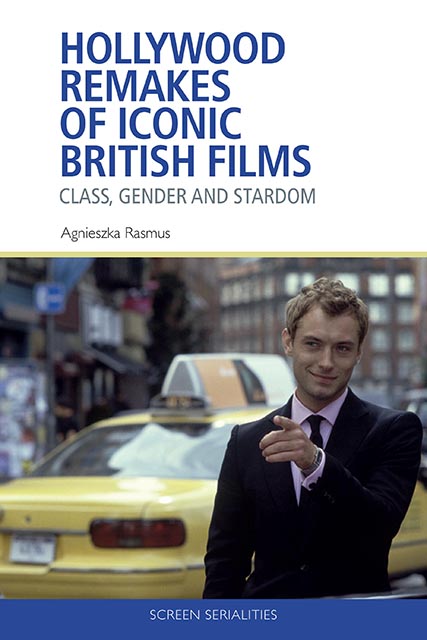Book contents
- Frontmatter
- Contents
- List of Figures
- Acknowledgements
- Preface
- Chapter 1 Remaking Iconic British Films of the 1960s and 1970s
- Chapter 2 From British Working-Class Gangsters to Hollywood Heroes: The Italian Job and Get Carter
- Chapter 3 Gender, Stars and Class Wars: Alfie and Sleuth
- Chapter 4 From Devilish Masters to Evil Dames: Bedazzled and The Wicker Man
- Chapter 5 Remaking, Cultural Exchange and Personal Legacy: The Limey
- References
- Index
Chapter 1 - Remaking Iconic British Films of the 1960s and 1970s
Published online by Cambridge University Press: 10 August 2023
- Frontmatter
- Contents
- List of Figures
- Acknowledgements
- Preface
- Chapter 1 Remaking Iconic British Films of the 1960s and 1970s
- Chapter 2 From British Working-Class Gangsters to Hollywood Heroes: The Italian Job and Get Carter
- Chapter 3 Gender, Stars and Class Wars: Alfie and Sleuth
- Chapter 4 From Devilish Masters to Evil Dames: Bedazzled and The Wicker Man
- Chapter 5 Remaking, Cultural Exchange and Personal Legacy: The Limey
- References
- Index
Summary
But how often do remakes (as opposed to sequels) really succeed commercially and/or creatively? The 1960s and 1970s are now seen as something of a golden age in cinema, but retooling the iconic pictures of the era had rarely yielded dividends. (2008: 271)
Michael DeeleyIn 1999, Notting Hill (Michell, UK/US) was the highest-grossing British film and the sixteenth-highest-grossing film of the year worldwide. A feelgood romantic comedy about an unlikely union between a rather unsuccessful English bookshop keeper and a glamorous Hollywood star showed not only that opposites attract, but also that love conquers all, including geographic distance and cultural difference, not to mention bank balance. However, to the acute eye of the British critics (see James 2001: 304), the film was more than just a love story between an English underdog and an American celebrity. Under the veneer of romance lay hidden (and perhaps less optimistic) truths concerning the British film industry and its relationship with Hollywood, a love affair where a powerful mistress comes and goes as she pleases, often leaving her poor lover in a state of complete disarray, trying to pick up the pieces.
This book captures two moments of that ongoing relationship. The first, in the 1960s and early 1970s, was when the British film industry's union with Hollywood was briefly a happy one before culminating in a painful divorce. As a result of that marriage, many iconic British films were produced that represented an era characterised by revolutionary sociocultural changes in British society and displayed the impact of Hollywood's involvement in the domestic film scene. In the second moment, and in a way similar to the characters of Notting Hill, who rekindle their love after a painful break-up, Hollywood returned to its 1960s and 1970s British films in the new millennium. It manifested its appreciation for the older classics by giving them a total makeover, resulting in an impressive number of Hollywood remakes of iconic British films.
The present study is an attempt at analysing Hollywood remakes and their British originals in terms of constructing and articulating their shared transnational identity and their difference. To show their reciprocal relationship, it will focus on four pairs of films: Alfie (Gilbert, 1966; Shyer, 2004), Bedazzled (Donen, 1967; Ramis, 2000), The Italian Job (Collinson, 1969; Gray, 2003) and Get Carter (Hodges, 1971; Kay, 2000) with its unofficial remake, The Limey (Soderbergh, 1999).
- Type
- Chapter
- Information
- Hollywood Remakes of Iconic British FilmsClass, Gender and Stardom, pp. 1 - 30Publisher: Edinburgh University PressPrint publication year: 2022



